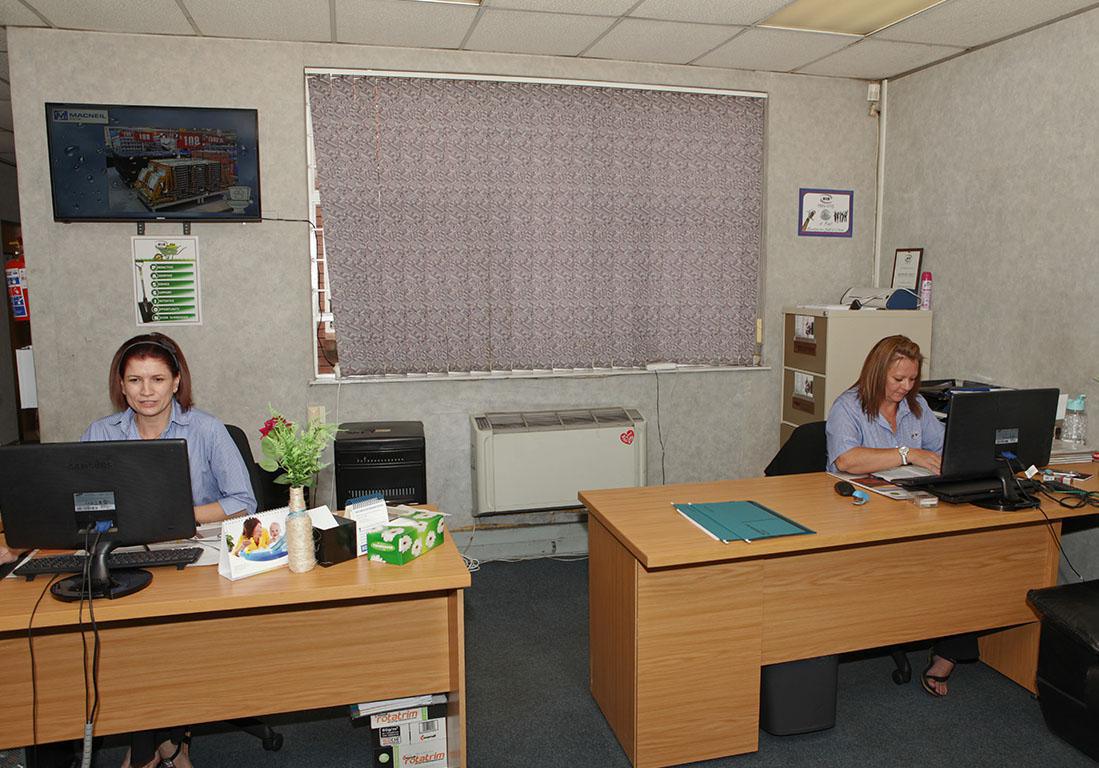“We make noise for your brand”
L ee Grant is the group CEO of BrandServe, a multi-million rand marketing and advertising company. His entrepreneurial journey started 17 years ago when he was struggling with debt that had grown out of hand. At the time Grant and his wife started Leegra, a field marketing and promotions company that dealt with sales, merchandising, promotions, product development and strategy.
Expansion
After several years of building numerous brands for different companies, Grant’s own business had grown by leaps and bounds. Eventually he decided to start a branding group, BrandServe. “The BrandServe group is quite new, it was formed three to four years ago as a sales, and merchandising company. BrandServe was structured on experience from Leegra, which became an industry leader in the promotional and field marketing,” says Grant. BrandServe recently expanded its operations to some of the Southern African Development Community countries like Namibia, Botswana and Mozambique. “We will soon also be operating in Mauritius and Angola, while having partnerships in Nigeria, Egypt and Kenya.”
Challenges
Grant says building a multi-million rand company did not come easy. At one point they almost lost their entire customer base. “We actually went from being the biggest player in our category to having a single client left and we parted ways with them.” He says letting go of the only client remaining in the business portfolio was not an arrogant move. “The client just did not fit our business culture and where we wanted to go. “The client was more of a distraction. Clinging to clients that are not in line with the vision you have for your own business becomes an obstacle when you want to expand.” BrandServe was able to part ways with its only client because the company wealth was not treated as a piggy bank by Grant and his directors. “We had saved up significant surpluses. By the time our operating costs exceeded a million rand per month, we were able to subsidise the loss of clients. I didn’t retrench any staff, but actually had to find new people. We had R10m in the bank to afford a new trading strategy.”
A new era
The BrandServe group of companies has positioned itself to raise the brand of different businesses “…above the noise and maximise sales opportunities…” Recently Grant and his two operating partners, Mel Stamerman and Tankiso Malekela, sold 25% of the company shares to Devi Kumnig. “Black empowerment in South Africa is both a challenge and an opportunity. The size of business, combined with the type of service we provide and the customers we deal with, have quite a big requirement in black empowerment and it was actually quite a relief to have external float in the business for the first time.”
Start-up capital and investment philosophy
Although Grant started his original business while in debt, he did not require start-up capital from investors to set up BrandServe. “Companies that start without external capital funding are more profitable and last longer than those that had funding.” However, part of the BrandServe business model includes investments as an investment holding company for entrepreneur-led, customer-focused businesses. The group invests in businesses that offer ‘best-in-class’ solutions and are, or can become, category-leaders in fields like: sales, marketing and research; training and HR; and emerging technologies focused on improving retail business such as workforce engagement, product management and retail technologies.
Business growth
Grant says he and his partners are working on the expansion of BrandServe by investing in technology, because the retail and marketing landscapes are changing all the time. “We like small niche businesses with intense management and decent operations. We are building those businesses all the time, from an acquisition point of view we have bigger ambitions and are involved in technology data outside the core business of the group.” The BrandServe model is bigger and its focus is on small niche businesses. They are building those businesses and have bigger ambitions, while involved in technology data. “I think from a retail perspective even the marketing landscape is changing, it’s becoming more about technology. We are buying a lot of our opposition.” Grant says being a marketer is a very blanket statement. “In short my best advice is to start with your customers in mind.” He stresses that people build products and create ideas before they understand the addressable market. From a marketing point of view, he says what sells and what people believe is a better product often don’t unite. “Clients often come to us and present an idea that is all over the place. They want to be everything to everyone. I don’t mind big industries, I don’t mind competitive industries, in fact I have learnt in time the more competitors, the more the opportunities.
Understanding the ultimate goal
Grant says his mother played a major role in developing the tenacity needed for an entrepreneurial journey. She taught him never to give up and to be ambitious. “When I was a kid, my mother lied to me. She told me I could change the world and I believed her, so here we are. I love shaping things.” When the entrepreneurial journey gets tough at times, Grant says he reflects on what they have achieved and the people they employ – then he understands the importance of the journey anew.
'I am responsible for 89 000 families. That is a lot of pressure, but actually quite an empowering feeling. You learn to have a brave face. I suppose it’s one of the times entrepreneurship can be quite educational.'


